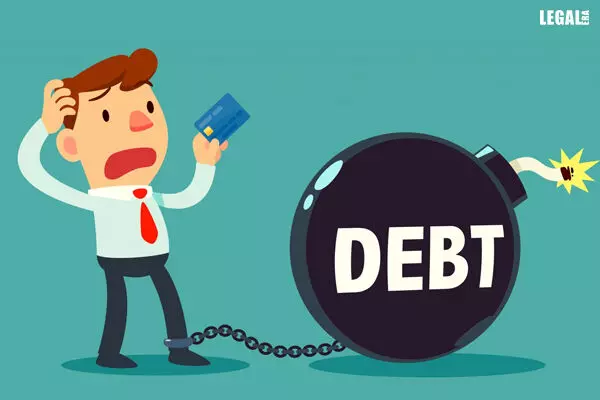- Home
- News
- Articles+
- Aerospace
- AI
- Agriculture
- Alternate Dispute Resolution
- Arbitration & Mediation
- Banking and Finance
- Bankruptcy
- Book Review
- Bribery & Corruption
- Commercial Litigation
- Competition Law
- Conference Reports
- Consumer Products
- Contract
- Corporate Governance
- Corporate Law
- Covid-19
- Cryptocurrency
- Cybersecurity
- Data Protection
- Defence
- Digital Economy
- E-commerce
- Employment Law
- Energy and Natural Resources
- Entertainment and Sports Law
- Environmental Law
- ESG
- FDI
- Food and Beverage
- Gaming
- Health Care
- IBC Diaries
- In Focus
- Inclusion & Diversity
- Insurance Law
- Intellectual Property
- International Law
- IP & Tech Era
- Know the Law
- Labour Laws
- Law & Policy and Regulation
- Litigation
- Litigation Funding
- Manufacturing
- Mergers & Acquisitions
- NFTs
- Privacy
- Private Equity
- Project Finance
- Real Estate
- Risk and Compliance
- Student Corner
- Take On Board
- Tax
- Technology Media and Telecom
- Tributes
- Viewpoint
- Zoom In
- Law Firms
- In-House
- Rankings
- E-Magazine
- Legal Era TV
- Events
- News
- Articles
- Aerospace
- AI
- Agriculture
- Alternate Dispute Resolution
- Arbitration & Mediation
- Banking and Finance
- Bankruptcy
- Book Review
- Bribery & Corruption
- Commercial Litigation
- Competition Law
- Conference Reports
- Consumer Products
- Contract
- Corporate Governance
- Corporate Law
- Covid-19
- Cryptocurrency
- Cybersecurity
- Data Protection
- Defence
- Digital Economy
- E-commerce
- Employment Law
- Energy and Natural Resources
- Entertainment and Sports Law
- Environmental Law
- ESG
- FDI
- Food and Beverage
- Gaming
- Health Care
- IBC Diaries
- In Focus
- Inclusion & Diversity
- Insurance Law
- Intellectual Property
- International Law
- IP & Tech Era
- Know the Law
- Labour Laws
- Law & Policy and Regulation
- Litigation
- Litigation Funding
- Manufacturing
- Mergers & Acquisitions
- NFTs
- Privacy
- Private Equity
- Project Finance
- Real Estate
- Risk and Compliance
- Student Corner
- Take On Board
- Tax
- Technology Media and Telecom
- Tributes
- Viewpoint
- Zoom In
- Law Firms
- In-House
- Rankings
- E-Magazine
- Legal Era TV
- Events
NCLAT: Related Party Cannot Assign Debt To Secure Seat In Committee Of Creditors

NCLAT: Related Party Cannot Assign Debt To Secure Seat In Committee Of Creditors
The National Company Law Appellate Tribunal (NCLAT), New Delhi bench, consisting of Justice Ashok Bhushan (Chairperson), Barun Mitra (Technical Member), and Arun Baroka (Technical Member), ruled that a 'related party' cannot assign its debt with the sole purpose of securing a seat in the Committee of Creditors (CoC), thereby affecting the interests and rights of other creditors.
The Corporate Insolvency Resolution Process (CIRP) was initiated against Rolta Bi & Big Data Analytics Pvt. Ltd. ("Corporate Debtor") on October 13, 2023. Greenshift Initiatives Pvt. Ltd. ("Appellant" or "Assignee") entered into an Assignment Agreement with Rolta Pvt. Ltd. ("Assignor") on November 6, 2023, after the commencement of CIRP, claiming to be a member of the CoC based on the assignment.
The Resolution Professional (RP) admitted the Appellant’s claim of Rs. 3.48 lakh but denied its participation in the CoC. The Appellant subsequently filed an Interlocutory Application (IA) seeking a seat in the CoC with voting rights.
The application was rejected in the impugned order dated January 13, 2025, on the grounds that the Assignor was a 'related party'. The Appellant appealed the order.
The Appellant's counsel argued that the fact that the Assignor was a 'related party' should not automatically make the Assignee a related party. They referred to the Supreme Court's decision in Phoenix ARC Pvt. Ltd. v. Spade Financial Services Ltd. (2021), where it was held that a third-party assignee, not a 'related party' to the corporate debtor, should not be barred from participating in the CoC.
The Resolution Professional contended that the Appellant entered into the Assignment Agreement after the CIRP began, intending to secure a seat in the CoC.
The NCLAT referred to the Phoenix ARC case, stating:
“... in certain cases, a related party creditor may assign its debts with the intention of circumventing the disability imposed under the first proviso to Section 21(2) by indirectly participating in the CoC through the assignee. ... In cases where it may be proved that a related party financial creditor had assigned or transferred its debts to a third party in bad faith or with a fraudulent intent to vitiate the proceedings under the Code, the assignee should be treated akin to a related party financial creditor under the first proviso to Section 21(2).”
The Tribunal observed that a financial creditor who is not a related party at the time of assignment could be a member of the CoC, provided the assignment is not intended to sabotage the CIRP by diluting the vote share of other creditors. The Tribunal stressed that the assignment should not be made to manipulate the CoC process.
The RP argued that "one cannot assign a better right than they themselves possess," asserting that the disqualification existing at the time the CIRP was initiated could not be removed through an assignment.
The Tribunal concluded that the purpose of the assignment was to gain a seat in the CoC and influence the rights and interests of other creditors. It dismissed the Appellant's appeal, reinforcing that assignments made with the intent to circumvent the law would not be permitted.


